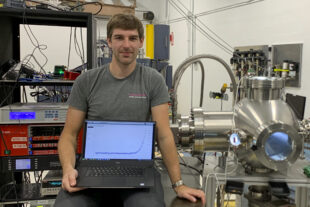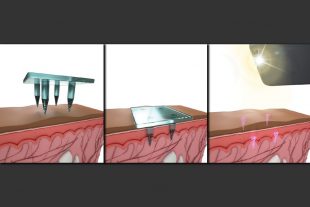News & Stories
News & Stories Filtered BY
Filtered by
Global
Report outlines route toward better jobs, wider prosperity
Decades of technological change have polarized the earnings of the American workforce, helping highly educated white-collar workers thrive, while hollowing out the middle class. Yet present-day advances like robots and artificial intelligence do not spell doom for middle-tier or lower-wage workers, since innovations create jobs as well. With better policies in place, more people could […]

Pushing the envelope with fusion magnets
“At the age of between 12 and 15 I was drawing; I was making plans of fusion devices.” David Fischer remembers growing up in Vienna, Austria, imagining how best to cool the furnace used to contain the hot soup of ions known as plasma in a fusion device called a tokamak. With plasma hotter than […]

A global collaboration to move artificial intelligence principles to practice
Today, artificial intelligence — and the computing systems that underlie it — are more than just matters of technology; they are matters of state and society, of governance and the public interest. The choices that technologists, policymakers, and communities make in the next few years will shape the relationship between machines and humans for decades to […]

Learning by doing, remotely
Experiential learning is alive and well at MIT — even when it’s remote. Just ask Julian Zulueta, a sophomore in biological engineering. Last May, he spotted an intriguing social impact internship opportunity in the PKG Public Service Center newsletter: The CDC Foundation, a Congressionally-chartered nonprofit created to support the Centers for Disease Control and Prevention […]

Diverse international cohort first to earn MIT master’s degrees in data, economics, and development policy
This past January, 22 students from across the world joined the MIT campus as the first cohort in the new MIT master’s program in Data, Economics, and Development Policy (DEDP). Developed by MIT’s Department of Economics and the Abdul Latif Jameel Poverty Action Lab (J-PAL), the program represents a new approach to higher education by […]

Technique could enable cheaper fertilizer production
Most of the world’s fertilizer is produced in large manufacturing plants, which require huge amounts of energy to generate the high temperatures and pressures needed to combine nitrogen and hydrogen into ammonia. MIT chemical engineers are working to develop a smaller-scale alternative, which they envision could be used to locally produce fertilizer for farmers in […]

Engineers develop precision injection system for plants
While the human world is reeling from one pandemic, there are several ongoing epidemics that affect crops and put global food production at risk. Oranges, olives, and bananas are already under threat in many areas due to diseases that affect plants’ circulatory systems and that cannot be treated by applying pesticides. A new method developed […]

Emergency-coordination system from Lincoln Laboratory supports Covid-19 response
When the Republic of North Macedonia joined a project supported by the NATO Science for Peace and Security Program (SPS) in 2016, the country teamed up with MIT Lincoln Laboratory to adopt the laboratory’s Next-Generation Incident Command System (NICS) as its official emergency-response platform. Now, this system is helping North Macedonian emergency agencies coordinate their […]

Storing medical information below the skin’s surface
Every year, a lack of vaccination leads to about 1.5 million preventable deaths, primarily in developing nations. One factor that makes vaccination campaigns in those nations more difficult is that there is little infrastructure for storing medical records, so there’s often no easy way to determine who needs a particular vaccine. MIT researchers have now […]

Anoushka Bose: Targeting a career in security studies and diplomacy
Anoushka Bose arrived at MIT in 2016 intent on pursuing problems related to climate change and energy. But two years later, she found herself discussing arms control and international security with Russian foreign minister Sergei Lavrov during a policy forum connecting American and Russian students. “It was eye-opening for me,” says Bose, a double major […]